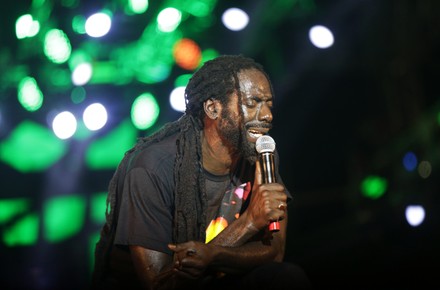Jamaican dancehall legend Buju Banton has expressed his frustration with Afrobeats artists, accusing them of taking inspiration from Jamaican reggae and dancehall music without giving proper credit.
During an appearance on the ‘Drink Champs’ podcast with hosts N.O.R.E and DJ EFN, Banton criticized Afrobeats for lacking depth and predicted that the genre would eventually fade away. He also condemned Afrobeats artists for using their music to make money rather than advocating for the liberation of the African continent.
Banton said, “There are a lot of culture vultures out there. They’ve focused on our music so much and stolen our culture. I’m not criticizing anyone specifically, but they don’t show us respect. And they still expect us to act like we’ve taken something from them? Reggae is the King’s music. Your music [Afrobeats] will come and go because it lacks soul and energy.
Our music is timeless. You can associate it with important moments in your life—like your first date, your wedding, your happy times, and your sad times. Because it’s the King’s music.”
He added that in 1991, he traveled to Africa, spending three weeks educating people from Ghana and other parts of the continent about reggae and dancehall music.
While he was initially pleased that music was seen as a bridge connecting cultures, he was disappointed that Afrobeats artists did not try to connect with Jamaica, the root of their inspiration. Instead, they connected with others, ignoring the influence of Jamaican music.
Banton further criticized Afrobeats artists for not using their platform to promote freedom in Africa. “What they’re doing with their music isn’t freeing Africa. It’s nonsense. They should be using their music to preach freedom, but instead, they’re singing nonsense.
We expect more from them. If they want money, they can go get it. But what will be said about them in the future? They won’t have made any lasting impact. Reggae music, on the other hand, will always be predominant. It’s still the King’s music.”
In summary, Buju Banton believes that Afrobeats artists should give credit to Jamaican music and use their platform to create meaningful change, rather than just chasing fame and money. He emphasizes that reggae music will always remain powerful and timeless.



